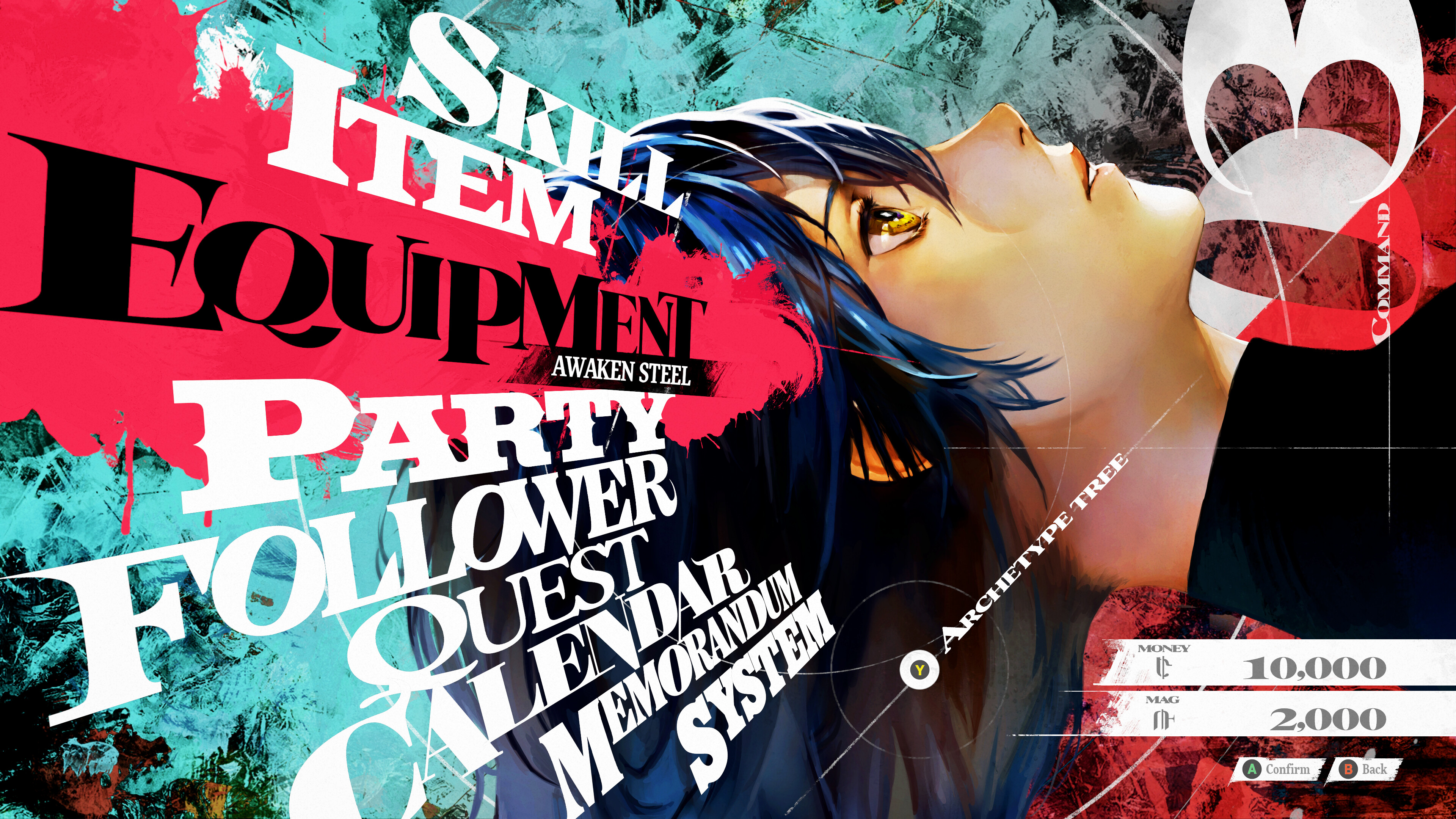How did Persona 5, Persona 3, and now Metaphor: ReFantazio achieve some of the best UI in JRPG history? Its veteran Atlus director stresses "unity" and support for dev teams
"We, the entire team, have been really focused on making really good UI since Persona 3"

Atlus only achieved such immediately recognizable user interface designs by cultivating talent and keeping its developers around for the long run.
As part of our huge Metaphor: ReFantazio preview from Summer Game Fest 2024, GamesRadar+ has spoken to Katsura Hashino and Shigenori Soejima about their new JRPG. A veteran duo of developer Atlus, Hashino has headed up countless Persona games in a directing role, while Soejima has provided the art style and direction for numerous beloved characters over the years.
Metaphor: ReFantazio has been grabbing headlines for weeks now for another good reason: its UI, with developers and fans alike have been lavishing praise upon its menu designs for months now since April.
"We, the entire team, have been really focused on making really good UI since Persona 3, so we're really honored to hear this," Hashino tells GamesRadar+ when asked how Atlus had perfected a refined approach with UI.
"When you're talking about what a game is built around - for example, you have an action game which focuses heavily on the characters and their actions and the animations. When you're working on those, you want to make sure that all those look as beautiful and amazing as possible. That's the experience you want people to enjoy," Hashino continues.
"But with an RPG, RPGs are focused so heavily on equipment and party setup and skills and using all these menus, so because you spend so much time in an RPG focusing on these aspects of the game, you want to make sure that they're as polished and as pretty as possible. It's so much of a core element. That's one thing that inspired us to put so much effort into the UI."
'Good UI' is sometimes minimal, which is an approach Metaphor: ReFantazio obviously doesn't ascribe to, with its colorful and explosive menus and interfaces. Hashino admits that "a lot of times, UI is such a basic part of the game," adding that it's not "exciting" or "flashy." But when you pick up a controller, you're interacting with a game's UI - it's your vehicle for the interaction, and if the vehicle feels good, it "adds so much more to the experience," Hashino explains.
Sign up to the GamesRadar+ Newsletter
Weekly digests, tales from the communities you love, and more
Soejima, for his part, adds that it's not just that Atlus' UI systems look amazing, but it's that they "work well" and "feel amazing." The veteran Atlus designer is aiming for a "seamless experience" with UI, and Hashino adds that making games is obviously a team effort, and so the more people on the "same wavelength" there are on a team, the better the final product will be. "We as a studio really want to keep encouraging that sense of unity," Hashino adds.
The veteran Persona designer also believes a lot of people, even if they don't analyze a game, can understand that a game had a singular effort behind it. "A lot of users don't put that much thought into analysis because they're just looking at the final product," Hashino says, and he hopes that Metaphor: ReFantazio can be the kind of game that imparts this "singular effort" vision for players.
Metaphor: ReFantazio launches later this year on October 11, simultaneously across PC, PS5, and Xbox Series X/S, a huge change for the Persona developer.
Hirun Cryer is a freelance reporter and writer with Gamesradar+ based out of U.K. After earning a degree in American History specializing in journalism, cinema, literature, and history, he stepped into the games writing world, with a focus on shooters, indie games, and RPGs, and has since been the recipient of the MCV 30 Under 30 award for 2021. In his spare time he freelances with other outlets around the industry, practices Japanese, and enjoys contemporary manga and anime.



